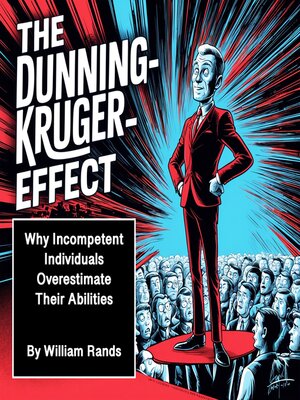The Dunning-Kruger Effect
audiobook (Unabridged) ∣ Why Incompetent Individuals Overestimate Their Abilities
By William Rands

Sign up to save your library
With an OverDrive account, you can save your favorite libraries for at-a-glance information about availability. Find out more about OverDrive accounts.
Find this title in Libby, the library reading app by OverDrive.



Search for a digital library with this title
Title found at these libraries:
| Loading... |
The Dunning-Kruger effect is a cognitive bias that leads individuals with limited knowledge or ability in a particular area to overestimate their competence. Named after psychologists David Dunning and Justin Kruger, who first identified this phenomenon in 1999, the effect reveals a paradox in human cognition: the less people know, the more likely they are to believe they know everything. Conversely, experts in a field tend to underestimate their abilities, assuming that others possess the same level of expertise. This bias is not only fascinating from a psychological standpoint but also carries significant implications for personal, professional, and societal development.
At the core of the Dunning-Kruger effect is the misjudgment of one's capabilities, which stems from a lack of metacognitive awareness—the ability to assess one's own knowledge and skills accurately. Incompetent individuals, lacking the expertise required to recognize their deficiencies, are unable to discern how little they know. This lack of insight leads them to overestimate their abilities and make decisions based on flawed reasoning. As a result, they may unknowingly engage in behaviors that exacerbate their incompetence, further reinforcing their false sense of expertise.
One of the most compelling aspects of the Dunning-Kruger effect is its broad applicability across various fields. From everyday social interactions to high-stakes decision-making in professional environments, this cognitive bias affects people at all levels. In the workplace, for example, leaders with limited knowledge in a specific domain may make decisions that negatively impact their teams, while employees with expertise may remain silent or defer to those who appear more confident. In education, students and teachers alike may fall victim to this effect, with the former believing they fully understand a topic despite limited comprehension, and the latter overestimating their teaching efficacy.






